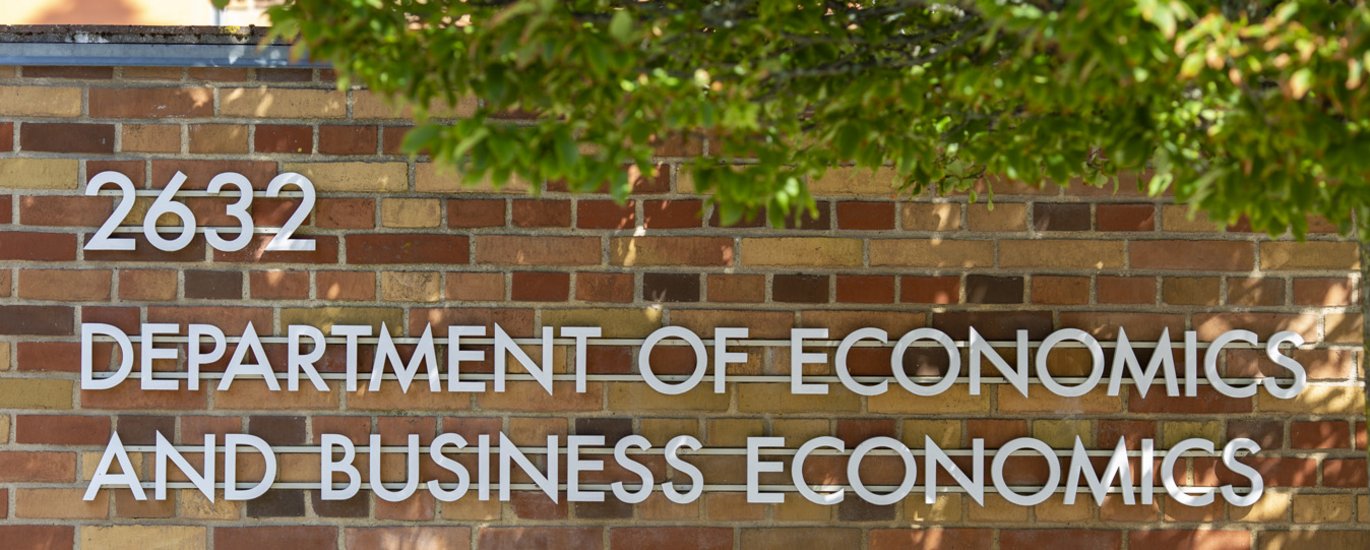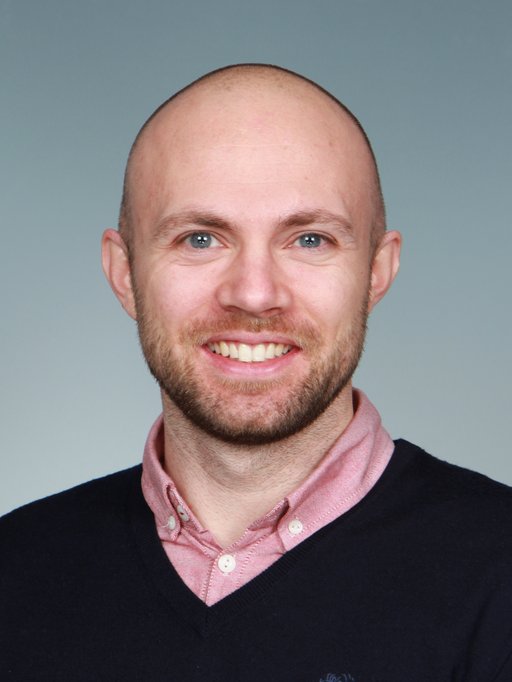New head of department at the Department of Economics and Business Economics
No major upheavals will follow when Thomas Quistgaard Pedersen takes up the position as head of the Department of Economics and Business Economics on 15 January. But serious challenges lie ahead.


“There won’t be any revolutionary changes. Of course I’ll want to do things my own way and make my mark on the department, but my job isn’t about me, it’s about helping the department's talented employees succeed,” says Thomas Quistgaard Pedersen.
He will be taking over from Professor Niels Haldrup, who headed the department for just over six years. During that period, Thomas Quistgaard Pedersen was part of the department management team as deputy head of department. He was also head of the Accounting and Finance section at the Department of Economics and Business Economics for three years.
“That's why I have a rather good sense of what I'm getting into. I've worked closely with Niels Haldrup, and with many years of administrative experience, I feel well equipped for the role as head of department,” he says.
Thomas Quistgaard Pedersen graduated with a Master of Science in Economics and Business Administration from the former Aarhus School of Business in 2006. After a detour to Danmarks Nationalbank (the national bank of Denmark), he returned to the university world and completed his PhD in 2010 at the former Department of Economics at the Faculty of Social Sciences, Aarhus University.
He was subsequently hired as an assistant professor, then associate professor and finally as professor at the Department of Economics and Business Economics at Aarhus BSS in 2020.
Thomas Quistgaard Pedersen’s research has particularly focused on price formation on the housing market. However, he acknowledges that there is unlikely to be much time for new research once he becomes head of department.
“My research has already been given lower priority due to my other administrative responsibilities, but I do have some projects that need to be completed,” he says.
According to the new head of department, the biggest challenges in the coming years will include the role of chatbots and other AI tools in teaching and student learning, as well as the department's relocation to the University City. The biggest challenge will of course be implementation of the Master’s reform.
“We’ve come up with ideas and input, but we don’t yet know what the framework will be for the new Master’s landscape. Another big question is how the reform will impact undergraduate studies,” he says and continues:
“We’ve chosen to engage constructively in the work on implementing the Master’s reform, and I’m sure we’ll get things resolved in a way that ensures we’ll be able to continue supplying skilled graduates to the labour market. We have many dedicated employees, so I’m sure we’ll be able to succeed,” says Thomas Quistgaard Pedersen.
When it comes to research, the short-term focus will be on getting CORE, the newly established research centre for research in energy, off to a good start. Former head of department Niels Haldrup will be the director of the new centre.
“The centre is a priority area that will involve every branch of the department, which is why it’s a joint project for all of us,” says Thomas Quistgaard Pedersen. In the long term, Thomas would like to once again have a basic research centre at the institute.
“We’re in a strong position when it comes to research and securing external funding. A position we need to maintain in order to continue developing innovative research.”
Dean Thomas Pallesen is very pleased that Thomas Quistgaard Pedersen applied for and accepted the position, and he looks forward to working with him as part of the faculty management team.
“Thomas is both incredibly qualified and well-liked at the department, and I’m sure that he’ll be a significant asset as head of the department and as a member of the faculty management team,” says Thomas Pallesen.
“I’d also like to extend my gratitude to Niels Haldrup for all his hard work as head of department over the past six years. He took over as head of department after a difficult period and guided everyone through a difficult adjustment. He leaves behind a strong and well-organised department. I’m also confident that he will continue to contribute to the positive development of the department and Aarhus BSS as head of our new research centre CoRe,” says the dean.
When Thomas Quistgaard Pedersen is not teaching, researching or solving administrative tasks at the Department of Economics and Business Economics, he spends time with his wife Rikke and their children Alma (12) and Julius (9).
He also enjoys walking his dog in the Marselisborg forests close to his home in Højbjerg and coaching his son's football team in Lyseng.